The Importance of Routine Air Conditioning Maintenance
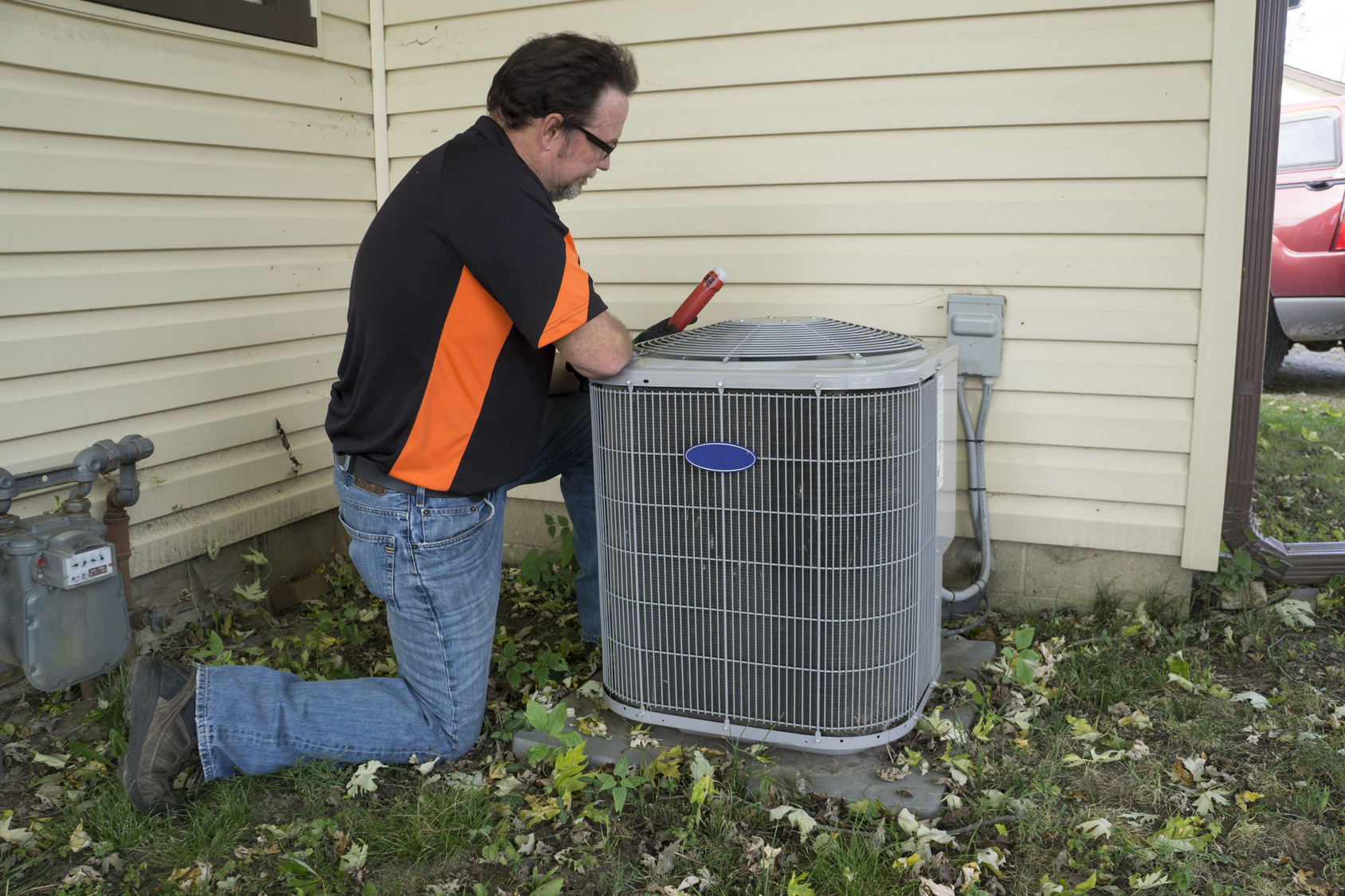
Tips to Keep Your Home and Wallet Cool This Summer
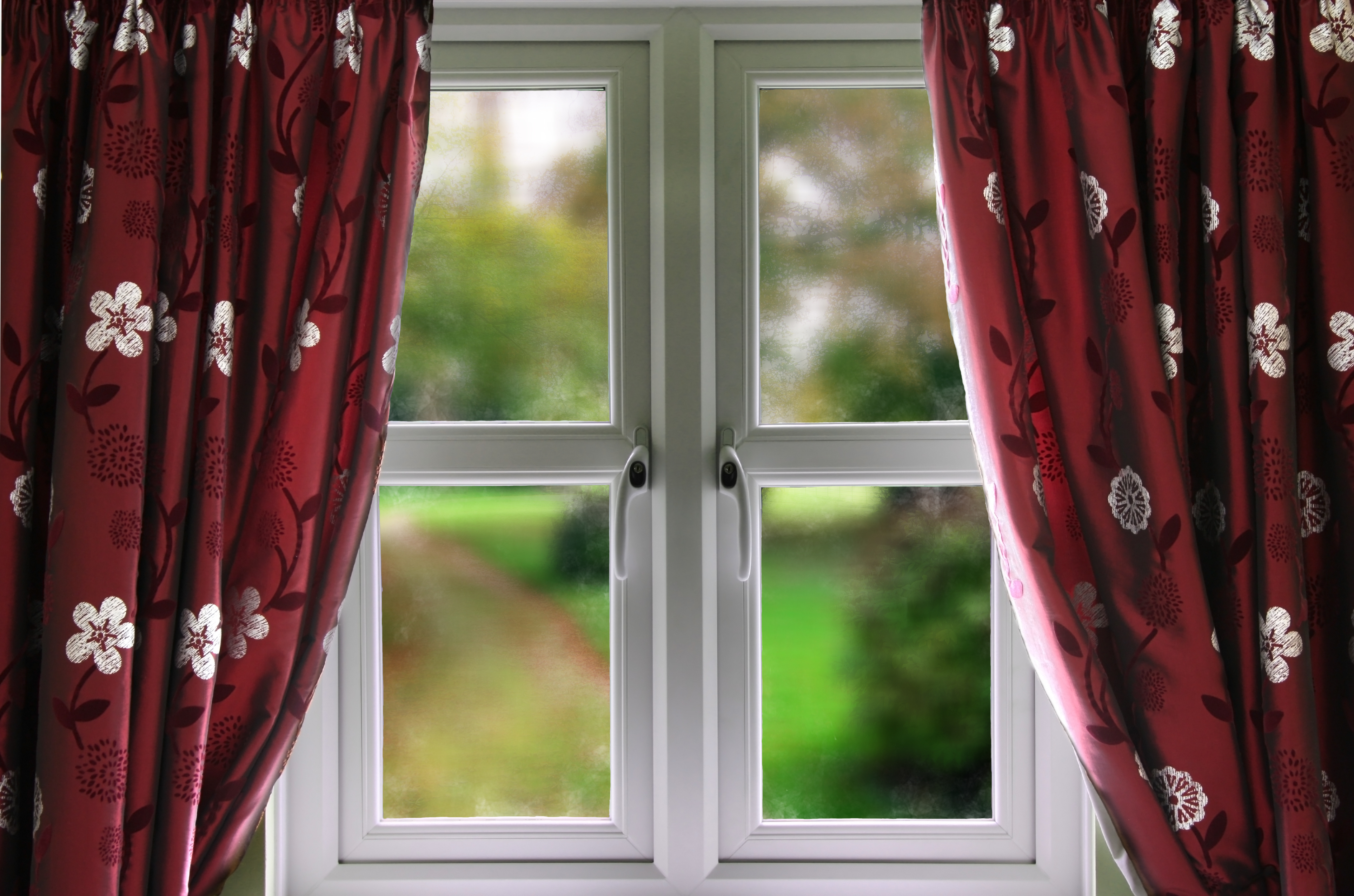
5 Tips to Extend the Life of Your AC
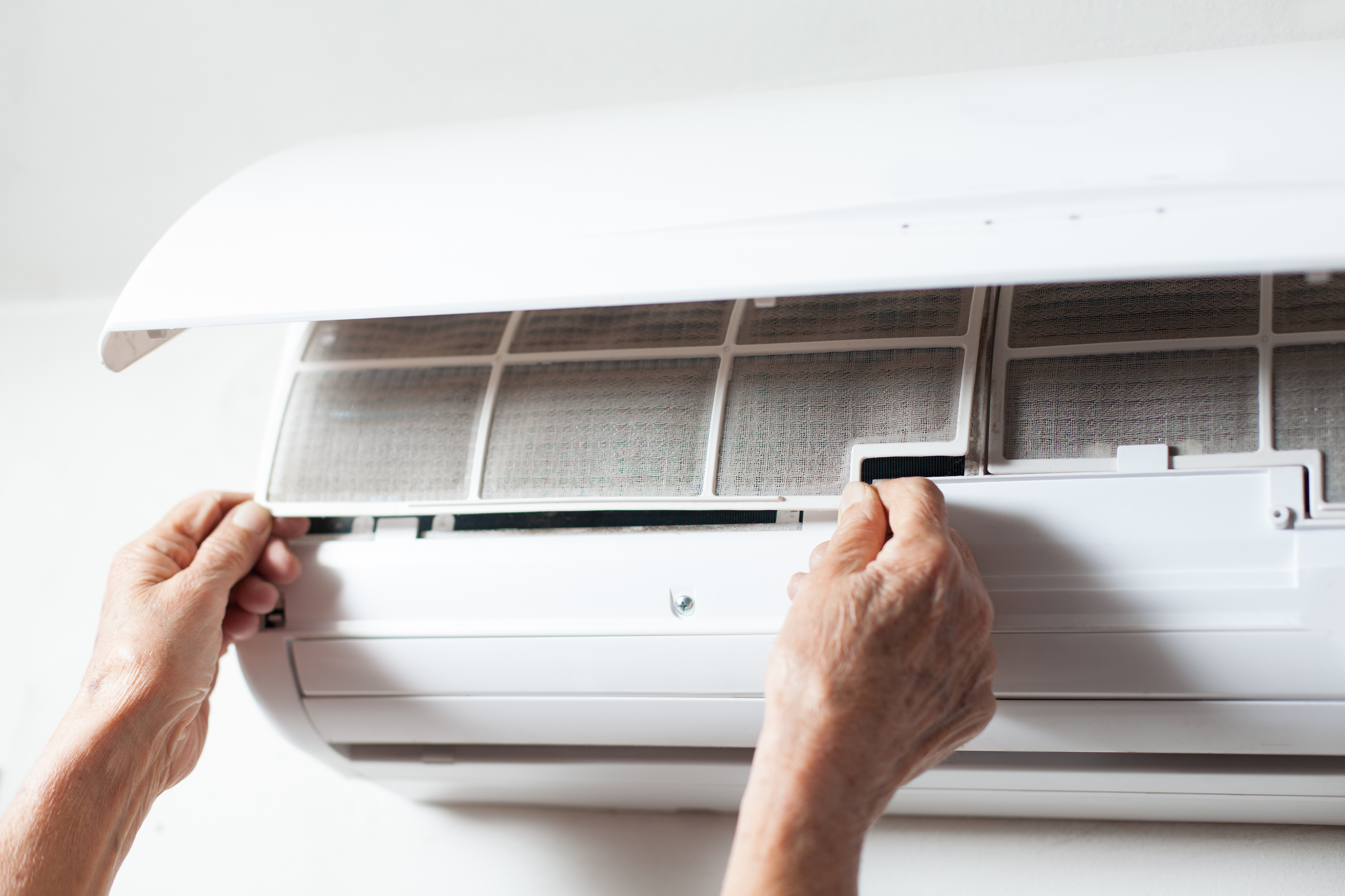
How to Avoid Letting AC Affect Your Health
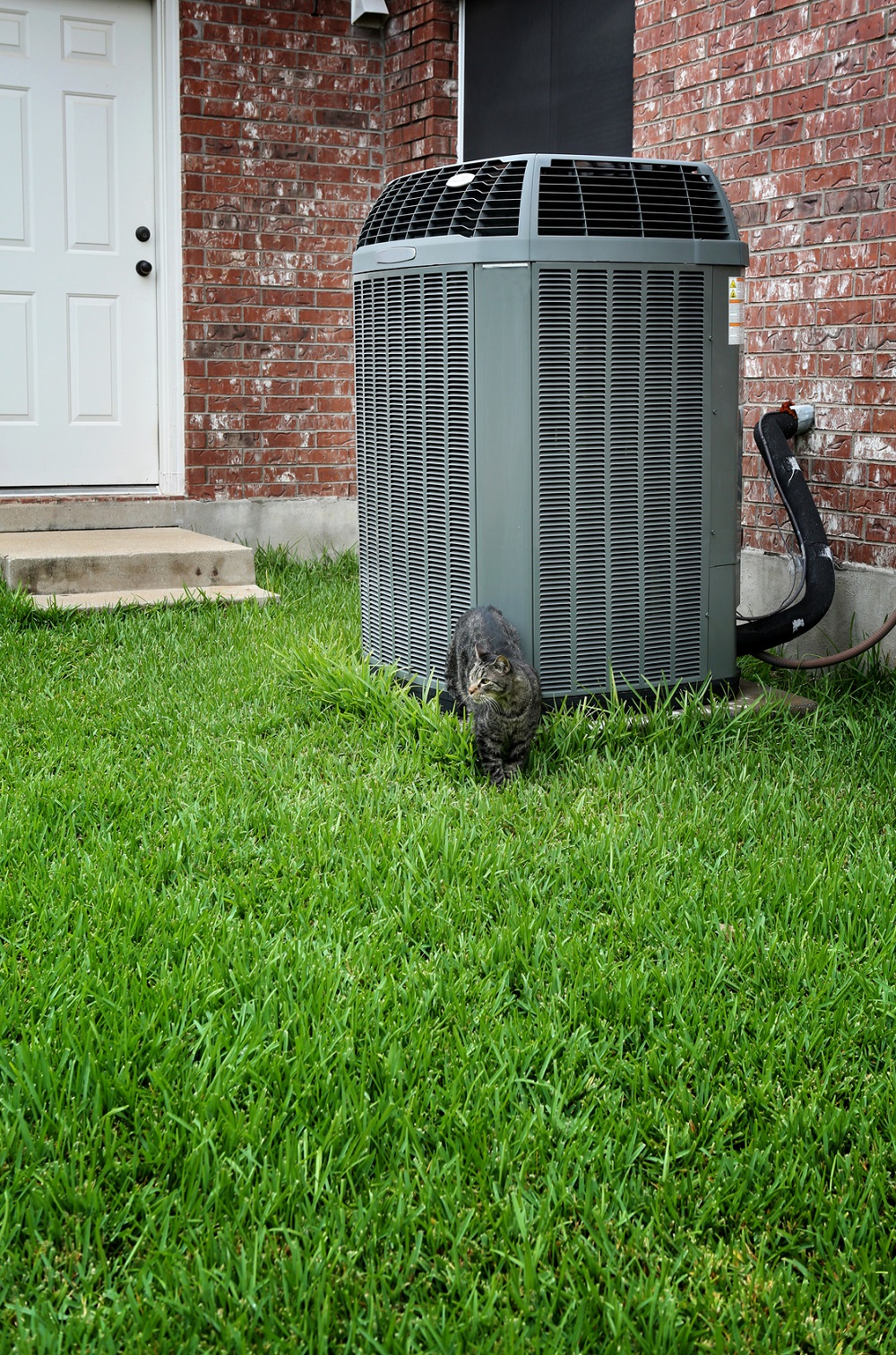
Ways to Make Your HVAC System More Energy Efficient
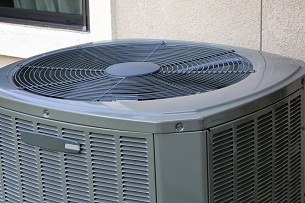
Upgrade Your Equipment
If your HVAC system is old and using out-of-date technology, the best thing you can do is replace it. Upgrading to a new energy efficient model may cost more up-front, but it will save you money in the long run. Be sure to look for the EnergyStar logo when buying your new equipment so you can be sure it is energy efficient.
Programmable Thermostat
You can also save money by purchasing and installing a programmable thermostat. This way, you can pre-set the temperature around the schedule of the people in your home. After all, there’s no point in having the heat turned up to 76 degrees Fahrenheit if nobody is home. By using the set-it-and-forget-it method, you won’t even have to think about the thermostat and you can still save money.
Clear the Vents
Your HVAC system won’t work very well if the vents are blocked. Re-arrange the furniture in the room to ensure nothing is blocking the air vents and ducts. You should also clean the air ducts regularly, as dust and debris can negatively impact its efficiency as well. Taking these simple steps will help preserve the airflow in your home.
Adjust the Temperature
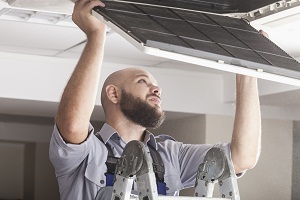
Improve the Home’s Insulation
You can also ensure your system is working efficiently by improving the home’s insulation. Poorly insulated homes lose more hot air in the winter and cold air in the summer, which means it will cost you more to keep your home at a comfortable temperature. Add insulation to your walls and windows, as well as around outlets, pipes, and ducts. Pay close attention to the attic and basement, as these spots are usually where homes lose the most heat or cold.
Change the Air Filter
This is a simple maintenance task that can make a significant difference. Air filters that are loaded with dust and debris will block the air from entering your home. Your system will run for longer and use more power to make your home comfortable. Be sure to clean dust out of the air filter every so often to keep your system functioning properly. You should also hire a professional to inspect the system every year and make sure it is as energy efficient as possible.
Signs That Your HVAC System Needs Repair

HVAC systems work hard to maintain a comfortable climate, and you likely have the electricity bills to show for it. HVAC units typically consume more energy than any unit in a business or residence, so its efficient operation is important. Regular maintenance by a professional technician is essential to avoid costly repairs.
Over time, the heating and air conditioning system will fail to work properly. Age, lack of maintenance, and wear and tear are a few of the factors that can contribute to a malfunction. There are many warning signs that can tell you if there is a performance problem with your system. Here are four signs that will make you want to contact your HVAC repair technician.
Poor Air Quality
An obvious sign that your unit is not working properly and is in need of repair is when the air conditioner blows warm air instead of cold air, or struggles to blow air into the room. Even if cool air does circulate, you may notice that the air quality is not cold enough for comfort. The coils may be dirty and need cleaning, or the compressor could be failing. If you notice this problem, you will want an HVAC expert to take a look at the unit.
Rising Bills
The heating and air conditioning system uses a great deal of energy. A sudden jump in the electricity bill that does not correspond with an increase in usage is a sign that the HVAC unit may be experiencing a problem and is due for repairs. You will likely notice this happening in older, less energy-efficient systems.
 Strange Smells and Sounds
Strange Smells and Sounds
If you switch on your heater or air conditioner and a pungent or unpleasant odor comes from the vents, you may want to contact a technician to diagnose and head off what could be real damage to the unit. That smell could be from a malfunctioning motor, or damage to the electrical wiring. The smell could be the result of mold growth somewhere in the system or the ductwork. If you become aware of bad smells from the ducts, then repairs to the unit will be necessary to safeguard the health and safety of your family or employees.
Moisture
Moisture or leaking in or around your HVAC system can indicate a minor issue, such as a clogged condensation tube, or something more serious, like leaking refrigerant. Wet areas around the unit are evidence that the unit is in need of immediate repair.
Signs of problems with your heating and air conditioning system requires prompt response and repair. A failing or broken-down system will cost money as well as cause overall discomfort to the people in your home or place of business. If you notice signs of a problem, contact your HVAC repair technician right away.
How Useful Is a Carbon Monoxide Detector?
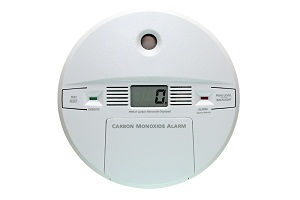
People are physical beings with five very useful senses. As such, they have a mindset that if they can’t see, touch, taste, hear, or smell something, it doesn’t exist. In the case of carbon monoxide, not only does it exist, it has the power to kill. When inhaled over time, flu-like symptoms develop. But left untreated, irreparable damage can be done to the brain and lungs. In the saddest cases, suffocation causes death.
What Is Carbon Monoxide?
Carbon monoxide, the gas known as the “silent killer,” is a residual product created when natural fuels aren’t fully consumed. Whether it’s wood, gasoline, coal, propane, heating oil, or natural gas, when they don’t fully burn, the byproduct is carbon monoxide. When we breathe in this noxious gas, our bodies react. Carbon monoxide poisoning is the number one cause of death by accidental poisoning in the United States, killing nearly 500 people a year and sending another 15,000 to the emergency room for treatment.
Regardless of where you live, your home employs at least a few of these products to keep you comfortable. Sadly, when a machine, like a water heater, malfunctions over time, it may be too late to take saving action.
How Will I Know It’s in My House?
Detecting carbon monoxide requires a specialized detector separate from your smoke alarms. CO can be present in your home without an active fire. There are a few types of systems available on the current market.
 What Is the Right Detector for Me?
What Is the Right Detector for Me?
- Biomimetic
This is a gel-based detector connected to a sensor. When carbon monoxide is present, the gel absorbs it, causing a chain reaction which changes the color of the gel. The color change triggers the safety alarm.
- Metal Oxide Semiconductor
This is a more technological reaction. A small chip is embedded in the detector that controls the amount of electricity flowing through the device. When carbon monoxide is detected, the electrical conductivity shifts, triggering the safety alarm.
- Electrochemical Sensor
This blend of electric and chemical science works together to sense carbon monoxide in your home. When the electrodes submerged in a chemical solution begin to increase their momentum, it triggers the safety alarm.
Before purchasing a carbon monoxide detector, do your research. Check with your state and see if they require a certain type of unit. Speak with your local fire marshal and see what they recommend based on your location. Choose the right fit for your home and install them. Place one on each floor, with particular attention to placement outside bedrooms. This simple action can save your family’s life.
How to Prep Your HVAC System for Summer Vacation
The car is loaded up with suitcases, the kids are strapped in and you’re ready to embark on your summer vacation. You have all the ingredients for a great trip, but is your home’s HVAC system prepared to sit unattended while you’re gone? Check out this helpful HVAC checklist before you head out.
Turn the thermostat up about 10 degrees, but don’t turn it completely off. Humidity can build up in your home with no cool air or air circulation, leading to problems like mold and mildew. Keep your system running occasionally while you’re away to prevent these issues.
Install a programmable smart thermostat, if possible. This is ideal if you plan to take a longer vacation. With a programmable or smart thermostat, you can set it to start cooling your home to your desired temperature just before your arrival.
Install surge protectors for your HVAC system. If you live in a climate where summer storms are common, surge protectors can safeguard your system against dangerous lightning strikes that cause power surges that damage your electronics while you’re away.
Open all vents. Make sure all rooms of the house have open vents for good air circulation. You may also want to open all doors to keep air flowing through your home.
Check air filters and change if needed. Before going on vacation, check your HVAC system’s air filter. In the summer, dirt and debris can build up faster; you may find yourself needing to change the filter more often. A clogged air filter can cause problems you don’t want to come home to, including increased energy bills and frozen condenser coils.
Latch and lock all windows and doors, and check for cracks and leaks. While you want good airflow indoors, you don’t want hot outdoor air coming in. If you suspect a leak coming from a window seal or under a door, remedy the leak before leaving for your trip.
Close all curtains and blinds. Keeping blinds shut and curtains pulled can lower the indoor temperature of your home. If you have open windows with no covering, consider installing a light sheet while you’re gone.
Inspect the exterior AC unit. Check your exterior unit to make sure it’s clear of leaves, dirt and debris that may be restricting airflow. Examine the inside and outside of the unit and clean as needed.
Check the weather. Checking your local weather before leaving for vacation can help you better prepare your home. Whether the weather is hot and muggy or dry and mild, it’ll affect how you set your thermostat.
Make sure your HVAC system is clean and well-maintained. Do an overall checkup on your HVAC system to be sure it’s in good working order. Schedule an HVAC inspection to make sure your system is running efficiently.
Before you head out for summer vacation, call the heating and cooling professionals at Cox Heating and Air today to schedule your annual HVAC system inspection.
Surviving Summer in Florida: Ways to Beat the Heat
There’s no doubt about what season it is when summer arrives in Florida. You know it’s here when you encounter the mosquitoes, humidity and blistering heat. Although you may feel tempted to stay inside from June through August, there’s no need. Let Cox Heating & Air Conditioning show you some helpful ways of beating the heat.
Time Your Outings
The sun’s rays are strongest between 10 a.m. and 2 p.m., so your risk of sunburn is greatest during these hours. However, that’s not actually the hottest time of day. Summer temperatures peak between 3 and 4 in the afternoon. Fortunately, this is also when afternoon thunderstorms show up, so you have a good excuse for packing up and heading inside until you can go back out to enjoy the rain-cooled air.
Dress Smarter
Finding the right clothing to wear can be tricky. It’s hot outside, but most houses and businesses have air conditioning, so it’s possible to go from 95 to 75 degrees in just a few steps. Try dressing in layers that you can remove and put on easily as the temperatures change. Look for breathable fabrics like cotton and linen, and opt for loose-fitting clothing that lets air circulate between the material and your skin.
Make Some Waves
As water dries on your skin, it helps draw heat away from your body, so take advantage of beaches, water parks and swimming pools to cool off and have some fun. Summer is a good time to try out watersports like kayaking, wakeboarding and tubing or to relax in a leisurely river or lake. Many cities also have splash fountains in public parks. Or, join the kids for a quick romp through your sprinkler.
Stay Hydrated
When it’s hot, you sweat. When you sweat, you lose important fluids your body needs. Don’t wait until you feel thirsty to stop for a drink of water. You should sip water throughout the day and consider sports drinks to replenish electrolytes if you’re exercising or doing heavy yardwork in the sun. This doesn’t just help you beat the heat; it may save your life.
Put Stay-cool Gadgets to Work
From personal fans with water misters to umbrella hats and cooling neck wraps, there are plenty of gadgets designed to cool you off. They do work, even if they look a little funny. You can also make your own cooling devices with items you have at home. Fill a spray bottle with water and peppermint tea as a cooling body mist. Put damp washcloths and hand towels in the freezer for wrapping your neck, arms and legs when you need a quick cool-down.
The key to enjoying your Florida summer is finding ways to stay cool, and one of the best ways to do that is with your air conditioner. Cox Heating & Air Conditioning can help. Contact us today to inspect, repair or replace the air conditioner in your home or office.
How to Keep Your AC Running Strong All Summer Long
The last thing you want to experience during the dog days of a searing Tampa summer is your AC going out. But the warmest months have arrived, and that means it’s prime time to ensure your AC system runs strong all season long. Here’s how to get started.
Get a Seasonal Inspection
If you didn’t schedule an HVAC inspection at the start of the warmer season, that’s a great first step. Or, if it’s been a few months since you last used your AC unit, it’s smart to get an inspection from a licensed professional, too. This ensures your AC unit is in working order and ready to handle the demands of the summer heat. After your unit earns a clean bill of health, you simply need to maintain it with cleaning and fresh filters throughout the summer.
Use Clean Air Filters
A clogged air filter can put unnecessary strain on your HVAC system and can lower your AC’s energy consumption by 5 to 15 percent. You also need to change your air filters more often during the summer months — you’ll be running the AC more often, so set a reminder to check your HVAC system’s filter at least once a month.
You may also want to switch air filter types or sizes in the summer. Fiberglass filters are the cheapest but have the lowest MERV ratings (which measure how effectively an air filter removes particles from the air), while high-efficiency filters are the most expensive and most efficient. If you don’t have allergies or need a pricey filter, the best overall choice for summer is a pleated filter. They’re inexpensive and can capture smaller particles for longer periods of time without affecting the airflow of your system.
Weatherize
Weatherizing your home for the summer can save money on cooling costs, ensure your HVAC system remains efficient and reduce energy consumption. You can weatherize effectively by:
- Adding caulking around windows and doors to keep cool air from escaping
- Replacing worn weather stripping under doors
- Hanging up window treatments
- Insulating electrical outlets
- Installing fans
Maintain Your Outdoor Unit
Many homeowners forget the essential part of the HVAC system: the outdoor unit. It pulls in outdoor air to cool and pump through your home. Outdoor condenser coils can become dirty or blocked, so keep the area around the coil clean and make sure foliage is trimmed back at least 2 feet from the intake to avoid blocking the airflow.
To complete a simple cleaning, power down the unit and:
- Remove the protective metal case
- Vacuum or brush off the condenser fins
- Wipe the fan with a damp cloth
- Spray the fins from inside out with a hose
- Reassemble the unit
The soaring Tampa temps can bring unpleasant conditions if your home isn’t prepped to beat summer’s heat. Schedule a seasonal inspection with the licensed professionals at Cox Heating and Air Conditioning to get your HVAC system in order for one cool summer.











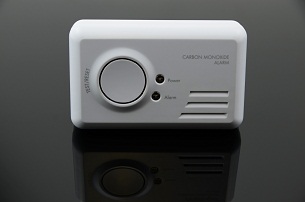




Recent Comments